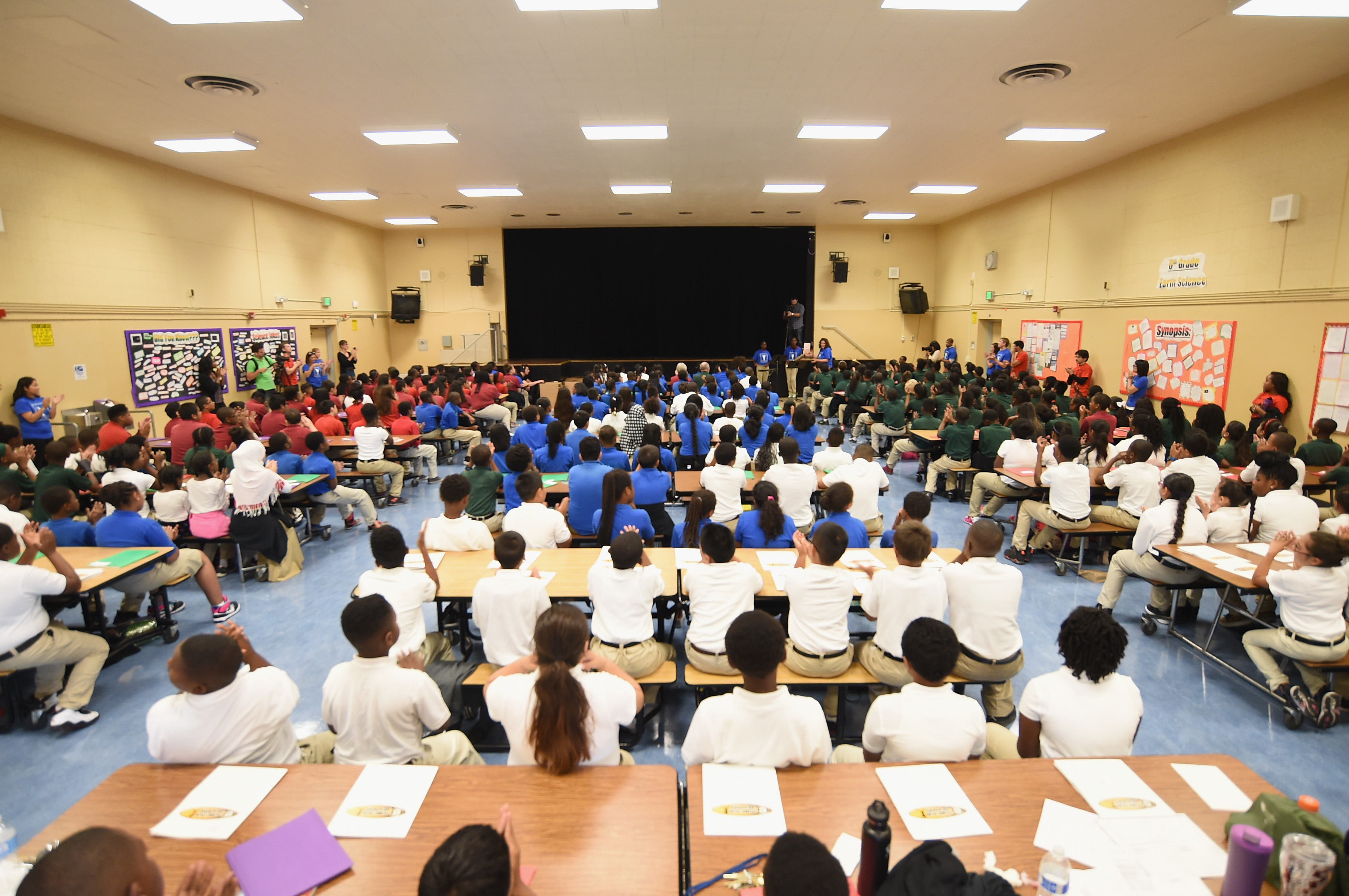The evidence is in: Charter schools rock!
So why can't they catch a break?


A free daily email with the biggest news stories of the day – and the best features from TheWeek.com
You are now subscribed
Your newsletter sign-up was successful
How are charter schools doing compared to public schools?
Among wonks, the conventional wisdom has congealed: on average, not much better.
This is technically true, but as the economic analyst Adam Ozimek points out, this is misleading, as averages so often are.
The Week
Escape your echo chamber. Get the facts behind the news, plus analysis from multiple perspectives.

Sign up for The Week's Free Newsletters
From our morning news briefing to a weekly Good News Newsletter, get the best of The Week delivered directly to your inbox.
From our morning news briefing to a weekly Good News Newsletter, get the best of The Week delivered directly to your inbox.
The most widely cited studies concerning charter schools actually paint a much more complicated, and much more encouraging, picture: Charter schools that cater principally to poor students — and especially those that primarily serve black students — do much, much better than public schools. It is charter schools that cater to middle-class and upper-middle class white kids that bring down the average.
Another important thing to note is that this also holds in randomized studies done on the basis of charter school lotteries. Randomized field trials are the gold standard of evidence in social science, as they are the only reliable means of avoiding hidden variable bias. In other words: Almost no social science findings are reliable, but this one seems less unreliable that most.
As Ozimek tersely notes, if any other public policy innovation was not much better on average, but much better for poor and black students, the conventional wisdom would be that the policy is a major success. Could it have something to do with the fact that school choice is associated with the political right?
The tragedy of the discussion around "school choice" in America is the hidden presumption that "school choice" doesn't exist already. But it does — for the privileged. This is not only a matter of the privileged being able to afford private schools, but also the fact that, through the public school catchment system, the real estate market is really the market for schools. Every family in America wants to buy a house in a place where there are good schools. Every commonwealth tries to boost real estate values by improving schools. That's how the system works. The rich get school choice, the poor get... whatever.
A free daily email with the biggest news stories of the day – and the best features from TheWeek.com
The drive for school choice is not a drive to turn schools into a marketplace, it's only to give the poor a way to access the preexisting market, which is currently closed off to them.
Charter schools are a step in the right direction, but the future should belong to K-12 spending accounts, whereby parents can spend their tuition dollars not just on a specific school but on a broad panel of educational activities, including internships, apprenticeships, and more. Families could pool accounts together and the poor and disabled would received fatter accounts.
To this columnist, the debate about school choice is the paradigmatic example of both the truth of the conservative worldview and the bad rap it gets. It exposes progressives and other supporters of big government as supporters of bureaucracies that entrench inequality and create insiders at the expense of the outsiders. And it shows how conservative policies benefit not just the common good in general, but the poor and disadvantaged in particular.
Pascal-Emmanuel Gobry is a writer and fellow at the Ethics and Public Policy Center. His writing has appeared at Forbes, The Atlantic, First Things, Commentary Magazine, The Daily Beast, The Federalist, Quartz, and other places. He lives in Paris with his beloved wife and daughter.
-
 The Olympic timekeepers keeping the Games on track
The Olympic timekeepers keeping the Games on trackUnder the Radar Swiss watchmaking giant Omega has been at the finish line of every Olympic Games for nearly 100 years
-
 Will increasing tensions with Iran boil over into war?
Will increasing tensions with Iran boil over into war?Today’s Big Question President Donald Trump has recently been threatening the country
-
 Corruption: The spy sheikh and the president
Corruption: The spy sheikh and the presidentFeature Trump is at the center of another scandal
